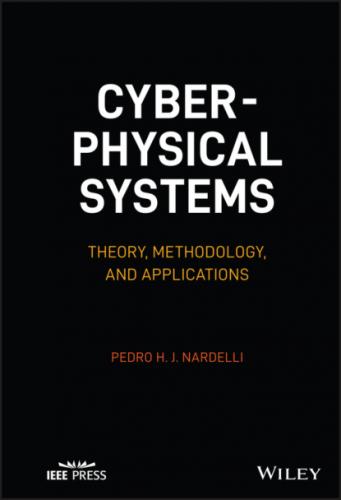Table of Contents
1 Cover
4 Preface
5 1 Introduction 1.1 Cyber‐Physical Systems in 2020 1.2 Need for a General Theory 1.3 Historical Highlights: Control Theory, Information Theory, and Cybernetics 1.4 Philosophical Background 1.5 Book Structure 1.6 Summary Exercises References
6 Part I 2 System 2.1 Introduction 2.2 Systems Engineering 2.3 Demarcation of Specific Systems 2.4 Classification of Systems 2.5 Maxwell's Demon as a System 2.6 Summary Exercises References 3 Uncertainty 3.1 Introduction 3.2 Games and Uncertainty 3.3 Uncertainty and Probability Theory 3.4 Random Variables: Dependence and Stochastic Processes 3.5 Summary Exercises References 4 Information 4.1 Introduction 4.2 Data and Information 4.3 Information and Its Different Forms 4.4 Physical and Symbolic Realities 4.5 Summary Exercises References 5 Network 5.1 Introduction 5.2 Network Types 5.3 Processes on Networks and Applications 5.4 Limitations 5.5 Summary Exercises References 6 Decisions and Actions 6.1 Introduction 6.2 Forms of Decision‐Making 6.3 Optimization 6.4 Game Theory 6.5 Rule‐Based Decisions 6.6 Limitations 6.7 Summary Exercises References
7 Part II 7 The Three Layers of Cyber‐Physical Systems 7.1 Introduction 7.2 Physical Layer, Measuring, and Sensing Processes 7.3 Data Layer and Informing Processes 7.4 Decision Layer and Acting Processes 7.5 Self‐developing Reflexive–Active System and Cyber‐Physical Systems 7.6 Layer‐Based Protocols and Cyber‐Physical Systems Design 7.7 Summary Exercises References 8 Dynamics of Cyber‐Physical Systems 8.1 Introduction 8.2 Dynamics of Cyber‐Physical Systems 8.3 Failures and Layer‐Based Attacks 8.4 Summary Exercises References
8 Part III 9 Enabling Information and Communication Technologies
